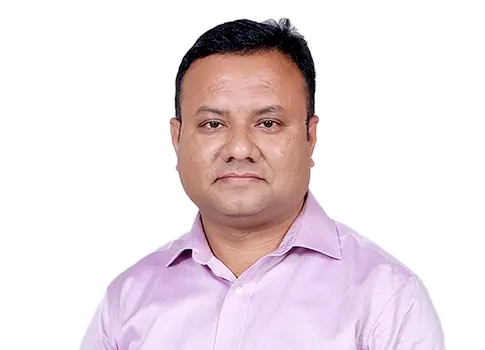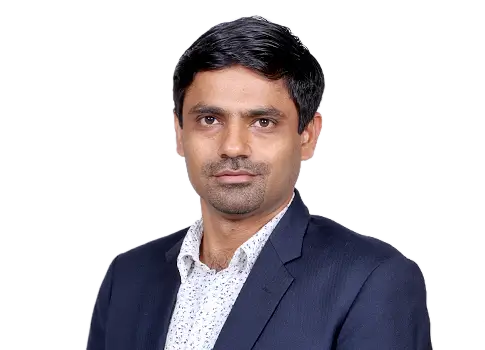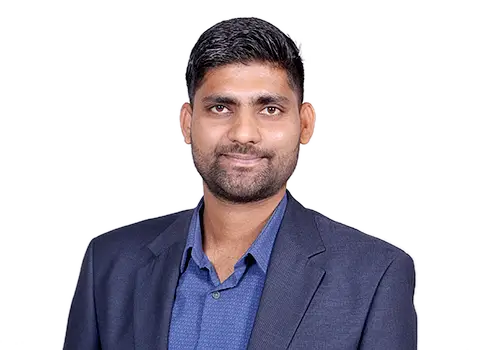- Home
- Academics
- School of Advanced Engineering
- Department of Applied Sciences
Department of Applied Sciences
About the Department
Knowledge of the fundamental principles of any discipline is key to obtaining an overall and in-depth understanding of the subject. The Department of Applied Sciences aims to fulfill this exact need. By fostering the fundamental principles and understanding of science, these courses aim to enhance the students’ overall learning experience.
The Department was established to equip engineering students with fundamental concepts of Physics, Chemistry, and Mathematics.
In the year 2018, the department started its own UG programs, B.Sc. (H) in Physics, Mathematics and Chemistry and subsequently started PG programs in 2019. The Ph.D. program was also started in Physics, Chemistry and Mathematics to produce high-quality researchers in several areas of Fundamental and Applied Sciences.
The department boasts of a team of highly-acclaimed researchers and faculty members who have expertise in the fields of material science, nanotechnology, applied optics, modeling and simulation, biofuels, composite materials, polymers, photo-catalysis, organic synthesis, solar cells, water treatment, optimisation, fluid mechanics, image processing, numerical analysis, differential geometry, etc. Many of them have been recognised by various academic bodies within and outside India, and have also received prestigious awards and fellowships.
The department also prides itself on being sought out for research and consultancy projects.
It has carried out and completed a large number of research and consultancy projects funded by national (DST, BPCL, IOCL, DST-SERB) and international (ABB) organisations.
For an industry-ready learning experience, the department has access to several state-of-the-art student labs and research-grade instruments for performing high-end research. Global collaboration partners from Germany, Japan, Slovenia, Switzerland, the US, etc. in several research areas of mutual interest allow students to gain a broader, global perspective.
Overview
To set, and be a benchmark as being an intellectually evolutionary sector that is able to have a transformative influence on society through continuous innovation in Education and Research
- Provide a foundation for preparing professionally-trained and committed individuals by offering holistic training, guidance and support
- To get students industry ready to be able to solve real business problems, while developing their leadership abilities by sharpening their communication and interpersonal skills
- Provide an environment conducive to an open, free-flowing knowledge sharing experience for the teachers, staff and students to ensure quality education for all
- Develop and disseminate scientific and technological knowledge through unique methods of quality teaching, research, and outreach activities
- Scientific Knowledge:
Explain the theoretical, conceptual, computational and experimental knowledge of science and mathematics to the solution of scientific problems. - Problem Analysis and Solution:
Formulate and analyse scientific approach for solving real-life problems that meet the specified needs with appropriate consideration for the broader understanding of subject. - Data Analysis and Interpretation:
Demonstrate, analyse and interpret the scientific data to provide the appropriate solution to the problem. - Research:
Investigate experimental, computational or theoretical research problems from science and mathematics domains independently. - Modern Tool Usage:
Select and apply appropriate techniques/tools effectively including graphical techniques, IT tools, reports and presentations within the scientific environment. - Environment and Sustainability:
Understand the impact of the scientific solutions in societal and environmental contexts, demonstrate the knowledge of, and need for sustainable development. - Teamwork and Ethics:
Function effectively as an individual and as a member or leader in diverse teams, and in multidisciplinary settings by applying the ethical principles. - Communication:
Demonstrate professional attitude with effective communication that supports and enhances individual/team performance. - Scientific Project Handling:
Demonstrate knowledge of science and mathematics and its various principles and apply them to handle projects in multidisciplinary environments. - Life-long Learning:
Recognize the need to engage in lifelong learning through continuing education and research.
Chemistry Lab Facilities
- UV/Visible Spectrophotometer
- Bomb Calorimeter
- Petro-OXY meter
- Density meter
- Brookfield Viscometer
- Potentiometric titrator
- Biodiesel reactor (Lab scale)
- Photocatalytic reactor
- Rotary Vacuum Evaporator
- Centrifuge
- pH meter
- Conductivity meter
- Orbital shaker
Physics Lab Facilities
- Electricity and Magnetism
- Mechanics
- Optics
- Semiconductor Physics
- Modern Physics
- Value-added experiments





